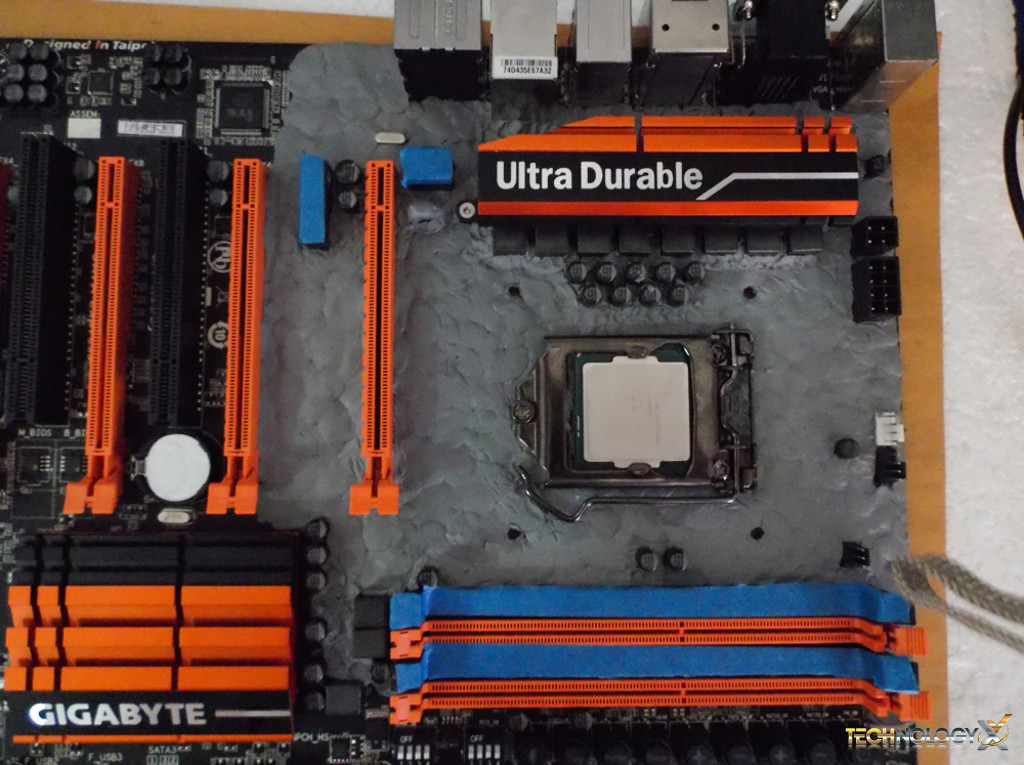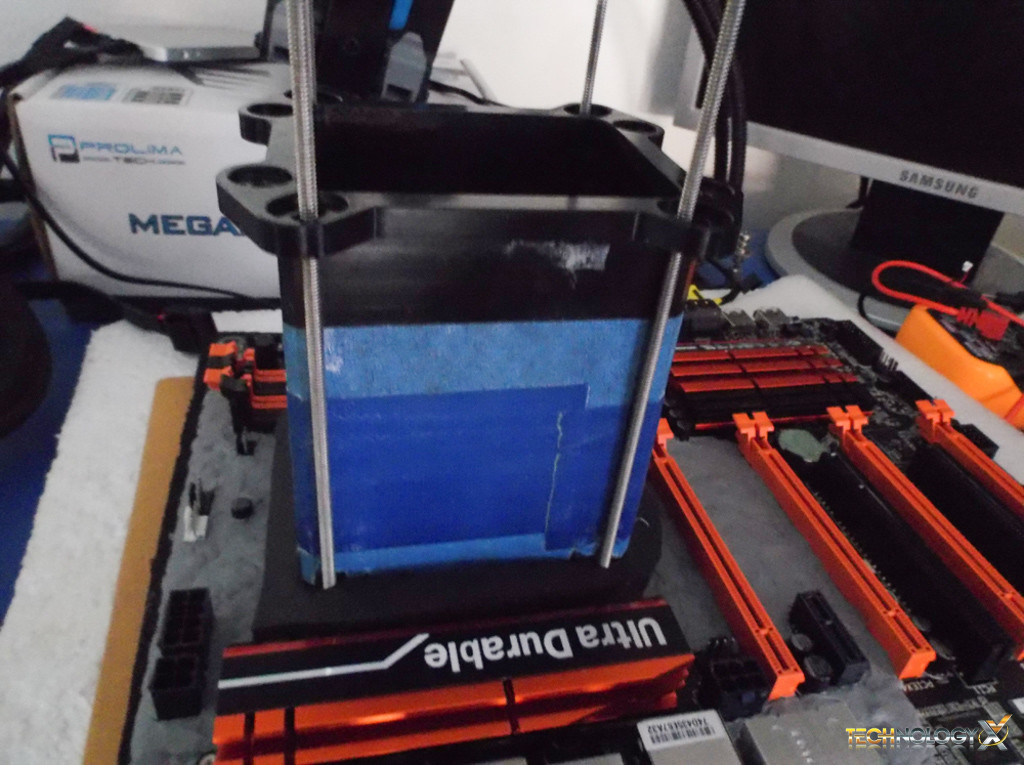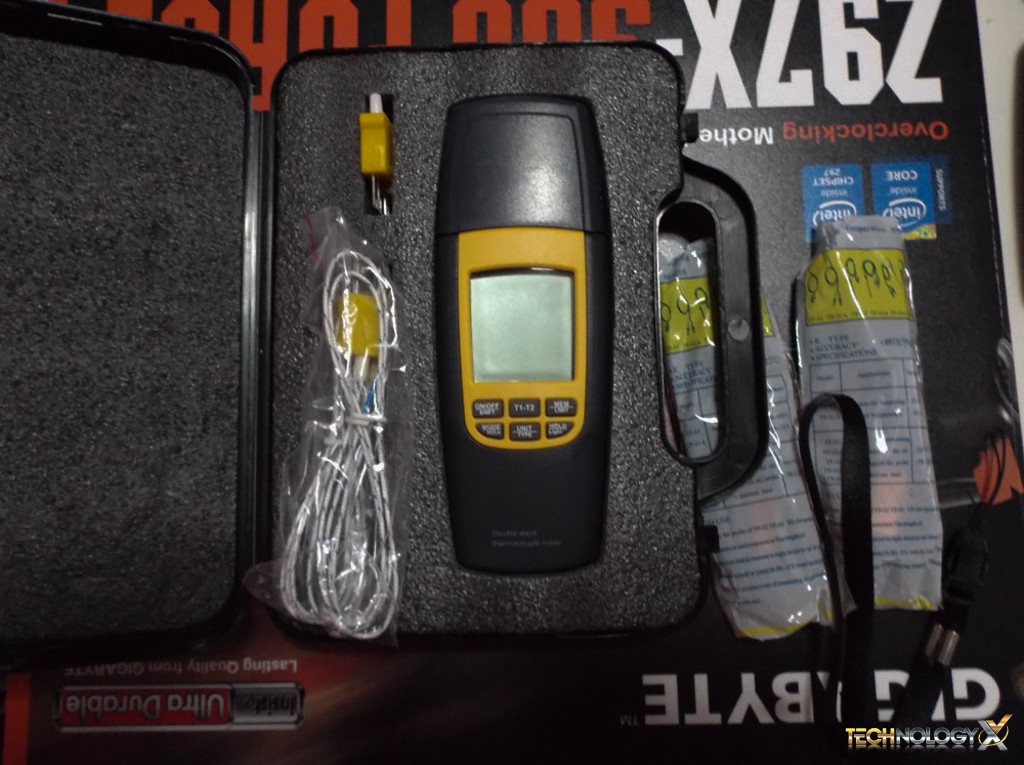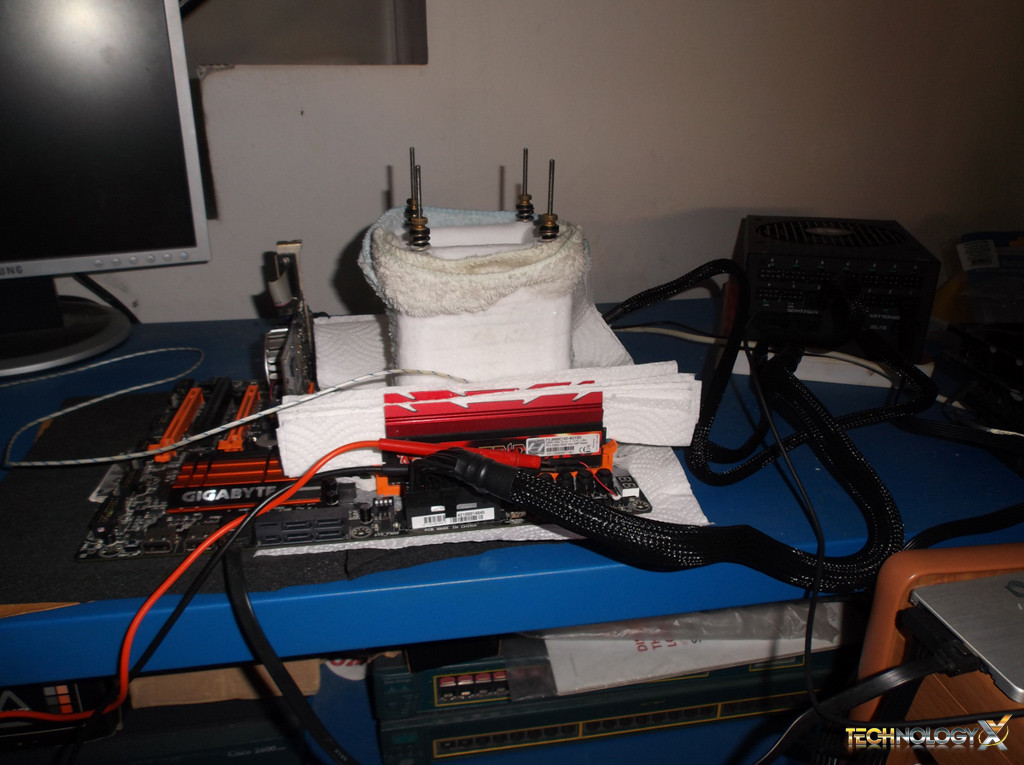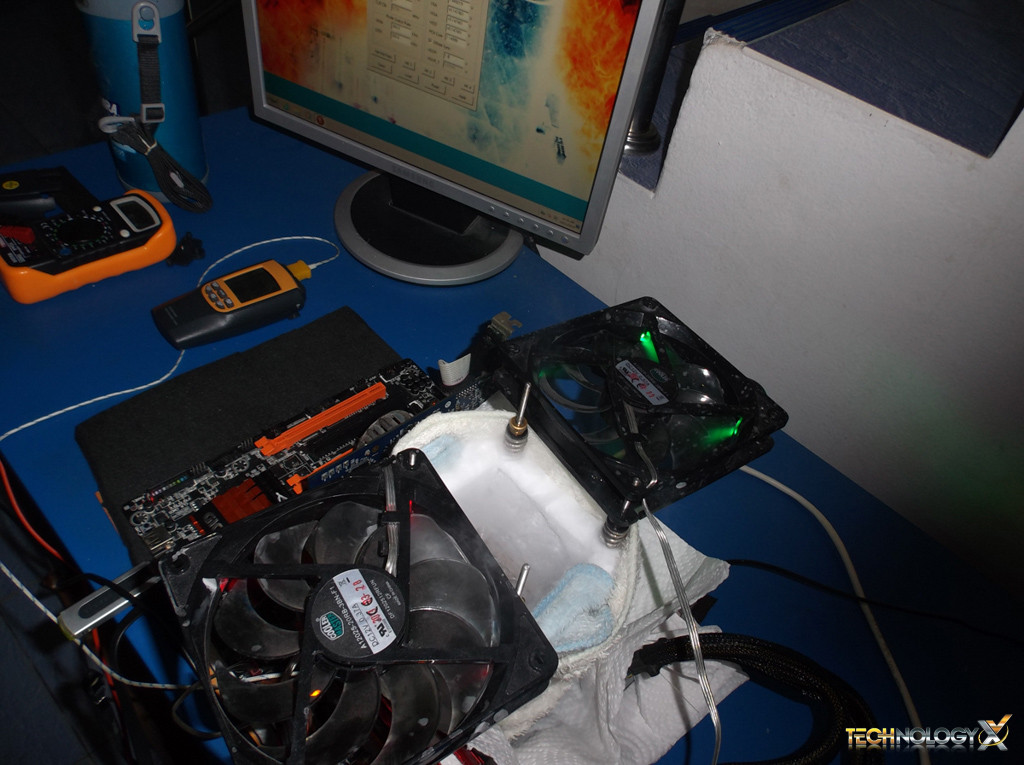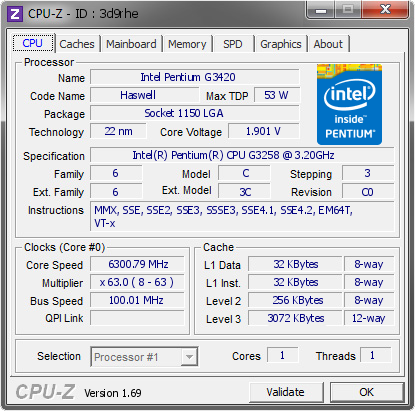PREPARING THE MOTHERBOARD FOR LN2 USE
As you can see in the following pictures we have used kneadable art eraser to insulate the Board’s top side. Underneath the board we have used Vaseline to insulate with a paint brush to spread the Vaseline over the socket half of the board and seal it by using a hairdryer. Other methods include conformal coating on both sides of the board, but on the topside can be tedious as you need to cover all slots plus CPU socket so they don’t get the coating on during spraying. Just think of spray paint as an example. Liquid Electrical Tape can also be used on both sides. We have also used blue plumbers tape to cover the unused RAM slots, the first PCIe slot and PEG connectors to protect those areas against condensation.
The following picture shows how the close cell foam gasket and LN2 CPU Pot fit nicely. A gasket is used to keep the cold directed at the CPU and although some users don’t use one, we recommend that you do. The pot used for this testing is a Kingpin Venom LN2 Pot.
COLDBUG AND COLD BOOT BUG
Because Intel CPU’s suffer from what is known as Coldbug (CB) and Cold Boot Bug (CBB), these temperatures must be monitored constantly with a digital thermometer and a K-Type bead probe, which all LN2 pots have a hole at the base to insert the probe. AMD CPU’s can handle what is known as a full pot, by that I mean they do not suffer from these bugs and can handle temps to -196C, which is the boiling point of Liquid Nitrogen in an ideal situation. Around -180C approx is roughly the boiling point on Liquid Nitrogen at sea level.
CB and CBB can vary from chip to chip although the delta between the two is pretty close. When a CPU hits its CB point, the system will shutdown whilst with CBB the CPU will not allow booting due to cold. To warm the pot up a hand held blow torch is used and is what is known as pulling the pot up. To get temperatures back down, LN2 is poured which is known as pulling the pot down. Now to continue on the insulation and prepping.
The next pictures show LN2 in use and as you can see we have insulated the Pot with cloth towels and paper towels. Paper towels are used to help protect the Motherboard as well as the VRM heatsink and RAM from condensation. These nice frosty pictures were taken towards the end of the session.
We use placements of fans to force the LN2 vapor upwards and away from the system. This helps with keeping condensation to a minimum thus keeping the system dry during the session. Condensation can be a killer of hardware due to shorts, so that is why insulation is important. Frost or ice on the other hand is not a problem due to ice having a high resistance.
Below is the max overclock obtained using LN2. From here benchmarking clocks will differ to the maximum overclock.
https://valid.canardpc.com/3d9rhe
 Technology X Tomorrow's Technology Today!
Technology X Tomorrow's Technology Today!

